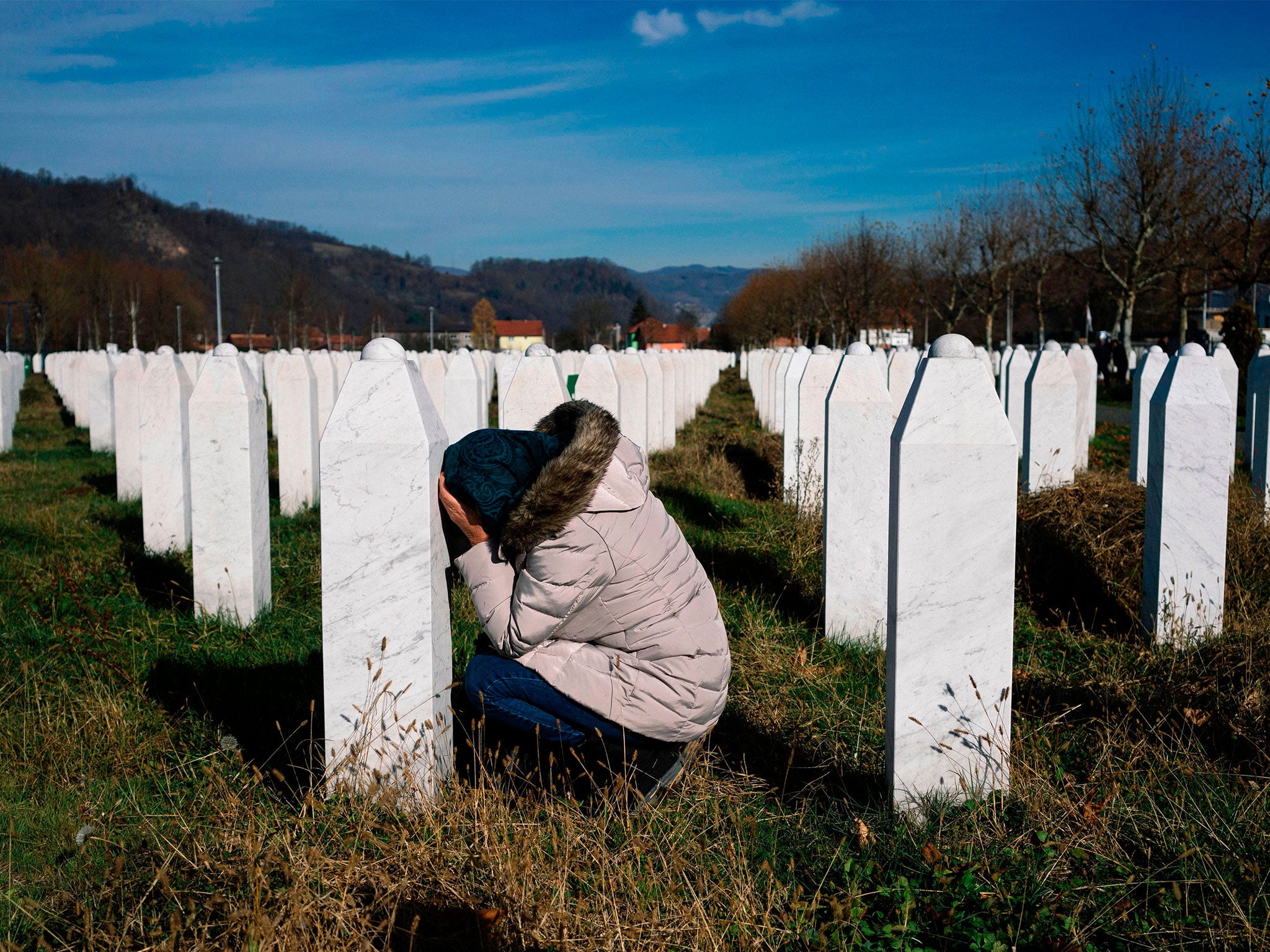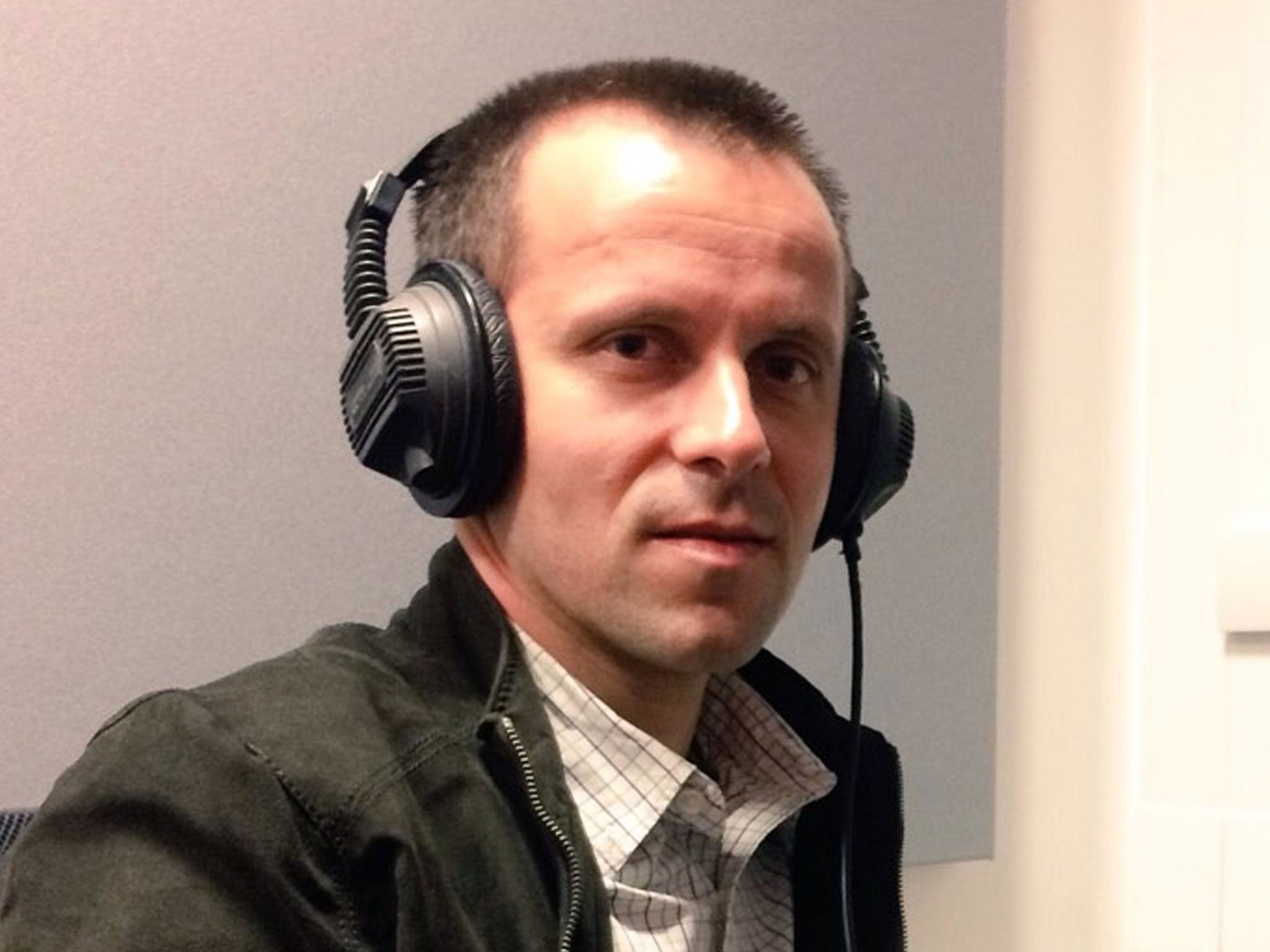Srebrenica genocide survivor warns 'forces of division' in Europe raise chance of more bloodshed
‘We still see mass persecutions and killings all over the world’

Nedzad Avdic was just 17 when he came face to face with a Bosnian Serb firing squad.
Arms bound, he was marched to the edge of a field and shot in the stomach, arm and foot.
More than 8,000 Muslim Bosniaks were murdered as part of a genocide carried out by units of Bosnian Serb forces under the command of army general Ratko Mladic, known as the Butcher of Bosnia.
But Avdic managed to escape his would-be executioners – one of the only survivors of the Srebrenica massacre.
Now, more than two decades after that atrocity, he has a warning for Western leaders about a fractured Europe raising the likelihood of a return to the persecution and bloodshed of the 20th century.
“Today, we can see increasing forces of division everywhere, particularly in Europe, which can take us on a road without return,” says Avdic, who is embarking on a tour of the UK that coincides with Bosnian Independence Day on 1 March.
“After the Holocaust and the words ‘Never again’, we had the genocide in Bosnia. The genocide was the most brutal crime on European soil since the Second World War.
“I thought that people would take it more seriously and not allow these horrible crimes to happen again, but unfortunately this is not the case and we still see mass persecutions and killings all over the world.”

Avdic has previously spoken out about the slaughter of civilians in Aleppo, Syria.
When asked whether the prospect of another genocide has increased or diminished, he says “chauvinistic rhetoric” is stoking “tensions all over the world”.
Speaking to The Independent, he says: “There is less and less tolerance towards minorities and their future is not clear.”
The genocide of Srebrenica in 1995 was one of the worst crimes in Europe since the Second World War.
Some of those accused of war crimes are only now being charged, including Bosnian Serb wartime police chief, Tomislav Kovac, who is accused of genocide.
The indictment against him, filed in January, includes claims he concealed evidence of mass executions by digging up the victims’ bodies and scattering them in unmarked locations.
But many suspected war criminals remain at large and Avdic says he does not expect “any kind of justice”.
“There are still many of those who are not brought to justice and those who will never be,” he says.
Recalling the night of his escape, Avdic says: “It was July and temperature was so high, especially on the trucks which were overcrowded and covered with the canvas.
“Unbearable conditions where people were losing their consciousness, drinking their own urine because we were without water, and left without oxygen. It was real hell.
“We arrived at a school building. Prisoners were tortured and beaten with rifles. We were forced to repeat: ‘This is Serbian land. It always was and always will be... Srebrenica was always Serbian. It always was, and always will be.’
“When the night fell, mass executions began. Around midnight it was my turn. My hands were tied up behind my back and in 10 minutes I was lined up to be shot. In front of me were lines and lines of dead bodies.
“Only two of us survived. I was hit with bullets in my stomach, arm and foot.
“We managed to untie each other and hide in the bushes. The day after the massacre, we watched from the woods as dead bodies were collected and loaded onto a truck.”
Haunted by the event, Avdic did not discuss it for nearly 20 years but, having returned to Srebrenica, broke his silence and now educates young people about genocide and the town’s recent past.
He will take part in a workshop at the Woolf Institute in Cambridge on 2 March.
Join our commenting forum
Join thought-provoking conversations, follow other Independent readers and see their replies
Comments